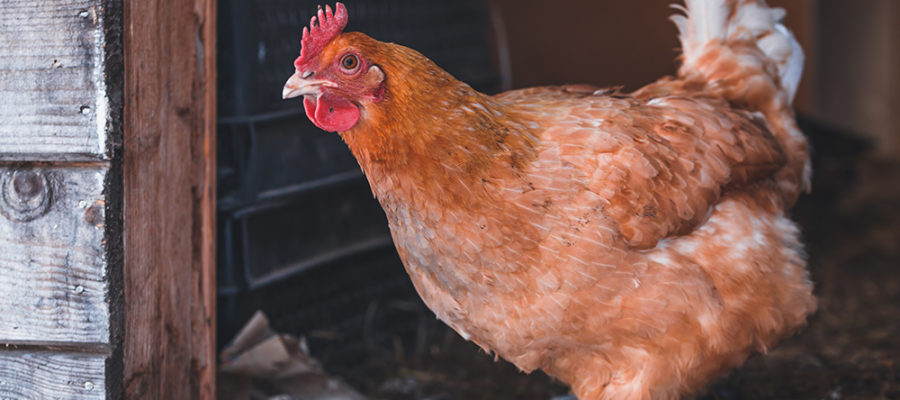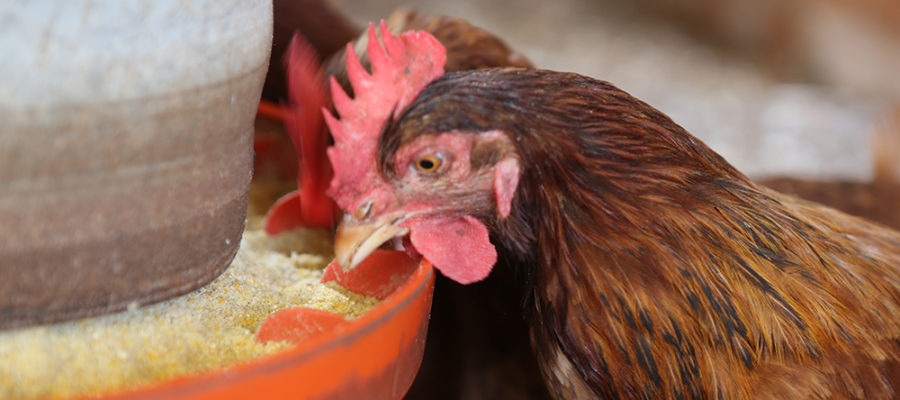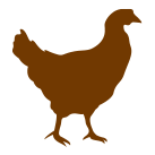Winter Feeding
Caring for your chooks this winter

A change of breeze is setting in and our wardrobes are seeing more coats and scarves being worn – it’s a sign of the cooler months. As we keep ourselves rugged up this season, it’s important to consider how we can help our girls keep their hengines warm this winter too. Use this article as a handy checklist to ensure you’ve got everything covered when it comes to caring for your chickens this season.
A warm coop
Chickens handle winter quite well as they do have a natural form of insulation in the form of their feathers, which they can fluff up their feathers to trap air and create a layer of insulation that keeps them warm. However, they will still need a coop that is dry and draft-free.
Choosing the right feed
Feeding a nutritious, complete feed is important, particularly if it starts to get cold before your hens have grown back all their feathers from the moult. A feed that provides adequate amounts of both energy and protein will help the hen maintain her body temperature in winter and also support her while she is growing all her feathers back in. Feathers contain between 80 to 85% protein so the hen will need a high protein diet during this time.
Prioritise feeding a high protein, complete feed such as Barastoc Top Layer, Champion Layer or Grains & Greens over feeding table scraps. This ensures that she gets enough energy, protein, amino acids, minerals and vitamins to grow feathers, maintain body weight and stay warm. If you’re unsure of which feed is best for your hens, download our handy seasonal feeding guide here.
When it comes to treats
It is important to be aware that during winter, the insects that your hen was consuming in the garden earlier in the year aren’t available. This means that you shouldn’t rely on these to meet a proportion of your flock’s protein requirements. Instead, look to provide high protein treats to your hens along with changing to a higher protein feed.
Providing grains as a treat in winter such as Barastoc 3 grain is great to give the hens a little extra energy. It is important that treats and scraps make up less than 10% of the diet of the hen. This means that a hen eating 130g per day should get 13g or less of grain or high protein treats. This ensures that the hen gets a balanced diet. A hen that maintains her body weight over winter is better equipped to come back into lay in spring.

Use a chicken feeder
While it is important to use a chicken feeder all year round, it is especially important in winter if you live in an area where winter is wet and soggy. If you throw pellets out on the ground after rain, they will get wet and fall apart as well as be trampled into the mud if the area is muddy. Not only will it cost you money in wasted feed but it will affect your hen’s feed intake and mean that they have less nutrients to stay warm and healthy. This can affect their health and body weight. Feed intake is important as hens increase their feed intake in winter to cope with the cold. Remember to start to put out more feed as the daily temperatures drop. Young hens may not be able to increase their feed intake to get the nutrient requirements that they require in winter. In this case, a higher energy and protein feed is definitely required.
Keep a close eye on illnesses
Watch out for signs of sickness particularly in winter. Feeding a complete feed will support your hen’s immune system as it contains energy, protein, amino acids, minerals and vitamins to keep your hen healthy. Some signs that your hen isn’t well is going off their feed, lethargy, dull and/or closed eyes, ruffled feathers, drooping wings, discharge from the nostrils, coughing, loss of weight and feather loss (excluding if the hen is going through a moult). The symptoms do depend on the type of disease that the hen has. If you have one sick hen in your flock, it is important to isolate it from the rest of the flock so that the other hens (and chicks and rooster if you have them) don’t catch whatever the sick hen has. Continue to monitor the flock to see if more birds fall ill. If your hen or hens are sick it is important to see a poultry veterinarian rather than just waiting to see if it will pass in time.
Stay hydrated
Water is just as important in winter as it is in summer. It is essential that birds have access to clean, fresh water every day. If you live in a part of Australia where there are hard frosts or snow during winter and the water trough is outside, then it is important to check that your flock has access to water in the morning. If the top of their water trough freezes over and doesn’t defrost for hours then this could affect feed intake. Thirsty birds will reduce their feed intake.

